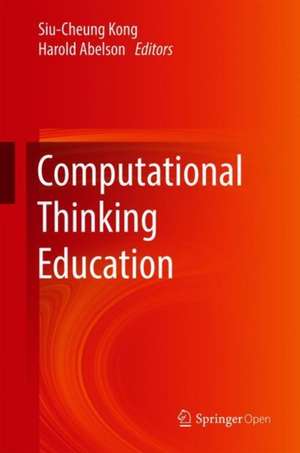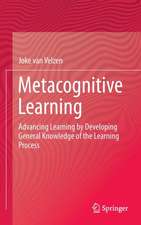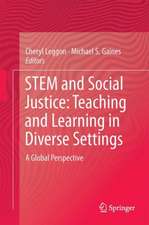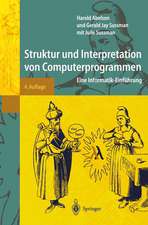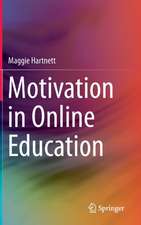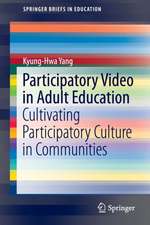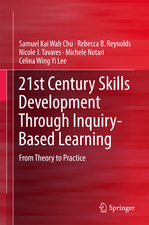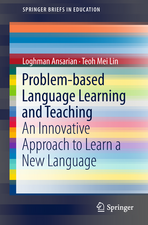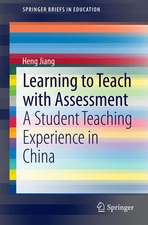Computational Thinking Education
Editat de Siu-Cheung Kong, Harold Abelsonen Limba Engleză Hardback – 7 aug 2019
This This book is open access under a CC BY 4.0 license.
This book offers a comprehensive guide, covering every important aspect of computational thinking education. It provides an in-depth discussion of computational thinking, including the notion of perceiving computational thinking practices as ways of mapping models from the abstraction of data and process structures to natural phenomena. Further, it explores how computational thinking education is implemented in different regions, and how computational thinking is being integrated into subject learning in K-12 education. In closing, it discusses computational thinking from the perspective of STEM education, the use of video games to teach computational thinking, and how computational thinking is helping to transform the quality of the workforce in the textile and apparel industry.Preț: 434.44 lei
Nou
Puncte Express: 652
Preț estimativ în valută:
83.15€ • 86.48$ • 69.68£
83.15€ • 86.48$ • 69.68£
Carte tipărită la comandă
Livrare economică 13-27 martie
Preluare comenzi: 021 569.72.76
Specificații
ISBN-13: 9789811365270
ISBN-10: 981136527X
Pagini: 392
Ilustrații: IX, 382 p. 110 illus., 93 illus. in color.
Dimensiuni: 155 x 235 x 29 mm
Greutate: 0.73 kg
Ediția:1st ed. 2019
Editura: Springer Nature Singapore
Colecția Springer
Locul publicării:Singapore, Singapore
ISBN-10: 981136527X
Pagini: 392
Ilustrații: IX, 382 p. 110 illus., 93 illus. in color.
Dimensiuni: 155 x 235 x 29 mm
Greutate: 0.73 kg
Ediția:1st ed. 2019
Editura: Springer Nature Singapore
Colecția Springer
Locul publicării:Singapore, Singapore
Cuprins
Notă biografică
Kong Siu-Cheung is currently a Professor at the Department of Mathematics and Information Technology, and Director of the Centre for Learning, Teaching and Technology at the Education University of Hong Kong. Prof. Kong holds a doctorate from the City University of Hong Kong and served as President of the Asia-Pacific Society for Computers in Education (2016-2017), following previous terms as President-Elect (2012-2013) and President (2014-2015). He is currently Editor-in-Chief of the international journal Research and Practice in Technology Enhanced Learning, and of the Journal of Computers in Education. In addition, Prof. Kong is currently leading a four-year project (2016 to 2020) on computational thinking education in K-12.
Textul de pe ultima copertă
This book is open access under a CC BY 4.0 license.
This book offers a comprehensive guide, covering every important aspect of computational thinking education. It provides an in-depth discussion of computational thinking, including the notion of perceiving computational thinking practices as ways of mapping models from the abstraction of data and process structures to natural phenomena. Further, it explores how computational thinking education is implemented in different regions, and how computational thinking is being integrated into subject learning in K-12 education. In closing, it discusses computational thinking from the perspective of STEM education, the use of video games to teach computational thinking, and how computational thinking is helping to transform the quality of the workforce in the textile and apparel industry.Caracteristici
Caters to readers who want to understand the importance of computational thinking and how to implement it in education
Demonstrates how computational thinking is currently being integrated into subject learning in K-12 education
Explores teachers’ professional development in connection with computational thinking education
Demonstrates how computational thinking is currently being integrated into subject learning in K-12 education
Explores teachers’ professional development in connection with computational thinking education
